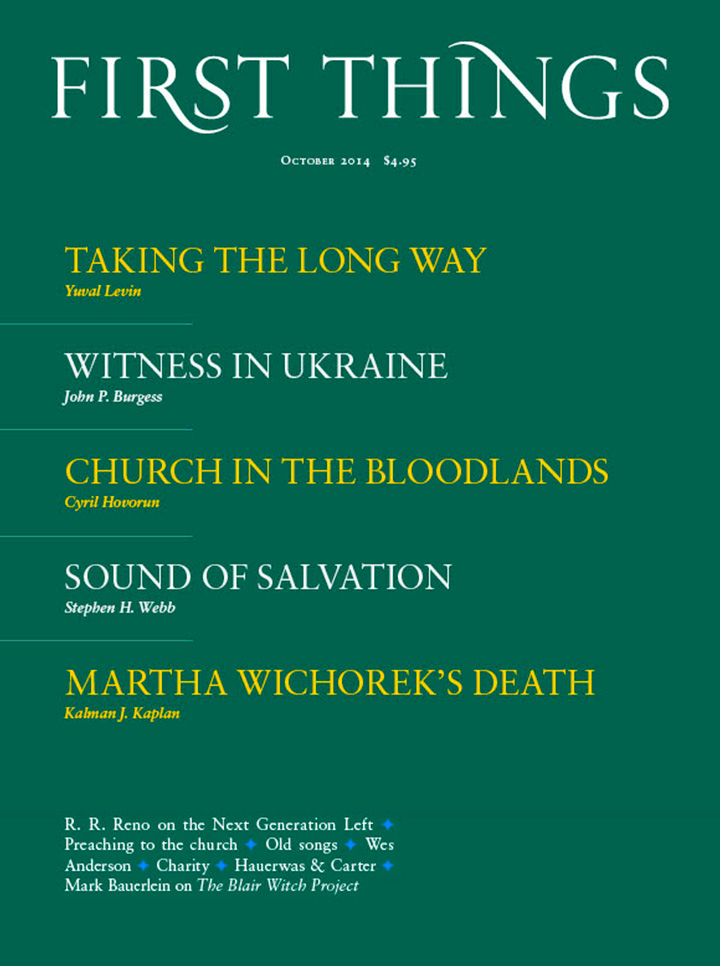by nicholas m. healy
eerdmans, 154 pages, $23
Good books on contemporary theologians are rare, good critical books rarer still. This is a very good, very critical analysis of a widely esteemed and powerful Christian teacher, economically written, tightly argued, and purposive. Its major proposals are that Stanley Hauerwas’s work is ecclesiocentric, that it does not speak sufficiently of God or of the works of God, and, consequently, that its rejection of the modern traditions of Christian moral theology is only selective.
On Healy’s reading, Hauerwas’s account of Christianity is “founded upon . . . a single locus”: the Church. Hauerwas insists that it is constitutive of Christian morals, that its practices form Christian identity, and that it is the corporate enactment of an alternative to the world. This view of the Church is threatened by what Healy calls “ecclesism”—that is, by “a distortion of Christianity consequent upon a reductive focus upon the church as the central and structuring locus for all theological inquiry.” The potential distortion is brought into relief by the contrast Healy draws between “traditional” theology (in which God is epistemologically, agentially, and ontologically prior) and modern theology in the person of Schleiermacher, in whose work the object of theological inquiry shifts to become the God-consciousness of the community as it is constituted by Jesus of Nazareth.
In effect, Healy asks his readers to step back from immediate engagement with Hauerwas’s texts—no easy task, because of their confident, often hortatory, rhetoric and their encouragement of a vivid sense of Christian difference—and to ask two questions. First: What arrangement of Christian doctrines does Hauerwas’s work promote or assume? In this arrangement, which doctrines expand and which atrophy? Second: In what historical trajectory may Hauerwas’s work be placed? Healy’s answer: In that of Schleiermacher’s achievement and influence. This historical placement serves not only to relativize the impression of originality but also to illuminate characteristics of his work that might otherwise easily escape notice, chief among which is a variety of moral immanentism. Hauerwas says relatively little about the ways in which the moral lives of Christians have their basis in God’s creative, redemptive, and perfecting acts. Because of this, the primary stuff of the moral life is the visible work of the ecclesial community; its origin in God is not made a matter for direct reflection.
Along with his ecclesiocentrism, Hauerwas emphasizes the Church’s visibility and a certain perfectionism, both of which prove difficult to reconcile with an understanding of the Church in time as an unsatisfactory, mixed society. Healy counters this first by ethnographical considerations, which aim to show that the Church is not so much a cleanly separate society of well-formed persons as a messy set of unfinished and half-successful negotiations. The ethnography, however, is subservient to doctrine, and the book’s final chapter gathers together the threads by arguing that Hauerwas is a “splendid social ethicist” whose theology is “surprisingly thin.” It says little about divine being and action, justification, the Spirit’s grace, or the life of virtue as orientation to God, Healy concludes. In short, if Hauerwas’s rendering of the Christian lifework is not adequate, it is because it does not place Church and morals sub ratione Dei.
For a number of reasons, this cannot have been an easy book to write. It raises large objections to an iconic body of writing. That body of writing is, moreover, largely occasional and unsystematic and so tends to deflect questions about first principles, and it is not written from within the scholarly culture of a particular theological discipline but ranges freely and confidently. Furthermore, polemic is an unstable art. Yet for all its dissent from Hauerwas, the book remains courteous and measured, acknowledges the cogency of Hauerwas’s work and admires elements of it, and is never abrasive or ad hominem.
What is to be made of the book’s primary claim? That the Church is the center of gravity in Hauerwas’s work is incontrovertible. For many admirers of his corpus, this is one of its most compelling attributes, the source of the unembarrassed affirmation of moral difference that has exercised such a potent and diffused influence on contemporary Christian ethics. Healy advances a different judgment: that it mislocates and mischaracterizes that difference by failing to speak adequately of its source in God and God’s acts. That judgment betrays a different set of preoccupations in the theology of the Church and ethics—one more attentive to God in himself and insisting that we understand Church and morals only when we understand their causes. Moral history, for Healy, originates in moral being. Hauerwas’s work has gone largely unchallenged from this vantage point. Healy’s book serves to direct reception of that work to another, less companionable, and certainly less modern set of questions.
A final note: Is it really Schleiermacher who is Hauerwas’s progenitor? Might not a better candidate be the great, and neglected, Albrecht Ritschl, surely the theologian of liberal Protestant Christian moral culture? Ritschl was, to be sure, no sectarian. But his repudiation of metaphysics, his fear that preoccupation with fides quae is a speculative distraction from viewing the world in terms of moral value, and his conviction that Christian faith is principally a mode of active moral community are not far from much that may be found in Hauerwas’s corpus. Perhaps one of the services of this fine book may be to cause its readers to ponder the irony that a body of writing that sets its face resolutely against the liberal tradition of modern moral theology may in important respects be that tradition’s heir.
John Webster is professor of divinity at the University of St. Andrews.

